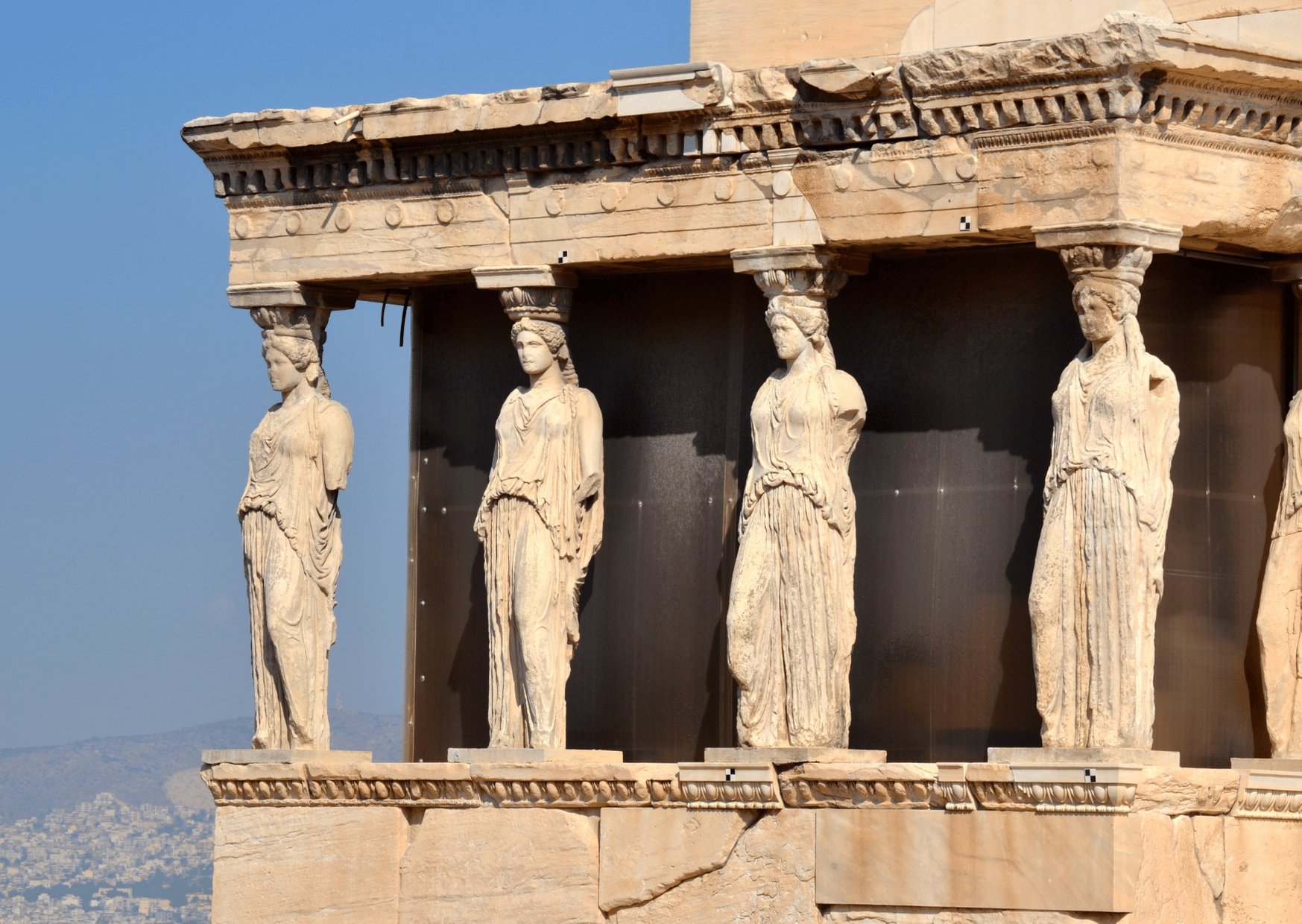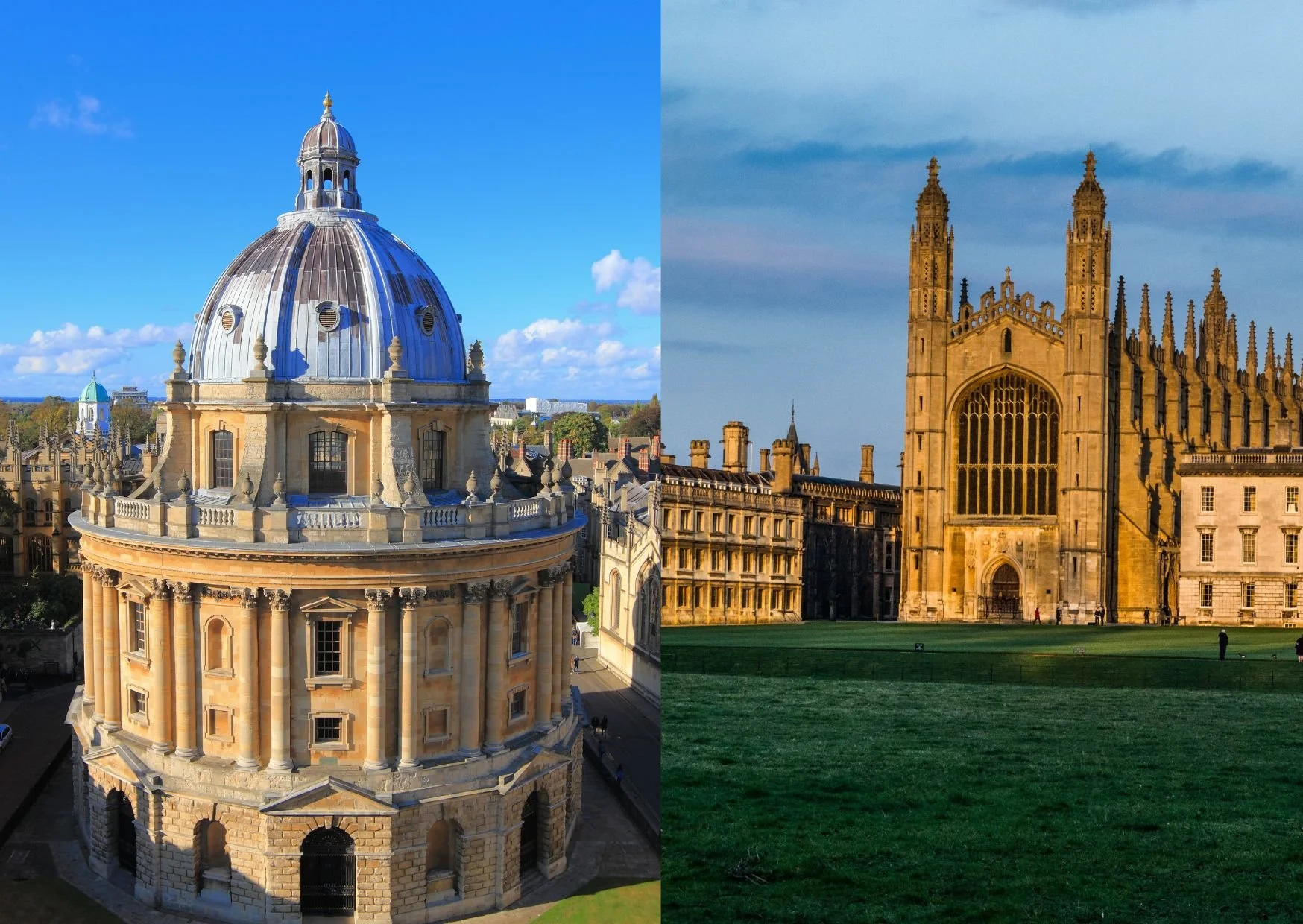Oxford and Cambridge Essay Competitions
Each year a large number of Oxford and Cambridge colleges run essay competitions for Year 12 students. Candidates are expected to demonstrate a flare for research and subject knowledge that stretches beyond the A-Level curriculum. We have gathered together some of the key essay competitions to enter across a number of subjects including Classics, History, STEM subjects, Philosophy, Archaeology and more. Time to prove you are Oxbridge level!
We have gathered together some of the key essay competitions to enter, hosted by colleges at Oxford and Cambridge University.
If you are applying for Oxbridge or a top UK or Russell Group university that interviews its applicants, it is worth noting that many of the competition questions are very similar to interview-style questions. Submitting an essay to one of these essay competitions is a great way to increase your super-curricular knowledge for personal statement or interview and many will provide feedback from top academics in their field. You may only have time to enter one competition, but check out similar ones relating to your course of application, and practise brainstorming/verbalising an answer to the question.
Could you be interested in having an Oxbridge-educated mentor support your writing process? Minds Underground™ is the brainchild of the wider educational company, U2 Tution, with offerings curated by a team of 900+ Oxbridge-educated mentors, who would be able to support both your essay competition entry and wider Oxbridge application (sessions from £75p/h).
Do also check out online Oxbridge Summer Schools, hosted by our team of Oxbridge graduates, with 23+ different subject categories!
Course-wide Oxbridge Essay Competitions:
St Edmund’s Hall (Teddy Hall), Oxford’s Big Think Competition
Overview:
The Big Think Competition challenges students to answer a ‘big’ question set by Oxford academics. Covering areas from Earth Sciences to Politics, the competition encourages research, argument, and creativity well beyond the school curriculum.
Open to: Students in Years 11–13 at UK state schools.
Format/Wordcount: A short video response (five minutes or less).
Prize: Winners receive cash prizes and are invited to Oxford for discussions, tours, and engagement with tutors and students.
Previous Questions:
With the rise of AI, do we need managers? - Economics and Management
Should we only study mathematics that is ‘useful’? - Maths
If artificial intelligence goes rogue, can’t we just turn it off? - Computer Science
Looking for more opportunities? Why not enter Minds Underground’s Essay Competition this year?
We run an annual competition across 18+ subjects spanning Humanities and STEM.
Topics include Architecture, Economics, Law, Medicine, Politics, Engineering Innovation, and many more.
Our Advanced STEM Competition sets challenging questions in Biology, Chemistry, Physics, Computer Science, and Maths.
Students are welcome to enter multiple subject categories.
The competition receives thousands of entries annually and is recognised by schools and leading academic institutions.
Look no further for a competition with a breadth and diversity of subjects and questions.
Humanities
Girton College, Cambridge’s Humanities Writing Competition
Overview:
Students use one or more of the five objects selected each year from the Lawrence Room museum to form a project.
It gives Humanities applicants an insight into university-level research.
Projects should be extensively researched, clearly written, and well-referenced, ranging well beyond the curriculum.
Open to: Year 12 students.
Format/Wordcount: Essays and creative responses, such as poems or dramatic monologues, are welcome.
Prize: Winners are invited to Girton for an afternoon of tours, tea, and cake, and they receive their prizes.
Previous Object Examples:
Two small amulets from ancient Egypt represent the divinities Bes and Bastet, protectors of women, children, and childbirth.
A late fifth or sixth century CE cinerary urn from the Roman and early medieval cemetery at Girton College.
Newnham College, Cambridge’s Woolf Essay Prize
Overview:
As Virginia Woolf did in ‘A Room of One’s Own’, this competition allows students to explore questions and themes surrounding the place of women in society, culture, and education.
Open to: Female students in Year 12 (or equivalent) from any school or nationality.
Format/Wordcount: Essays of 1,500-2,500 words.
Prize: Book tokens of £300 for 1st, £200 for 2nd, and £100 for 3rd prize.
Previous Questions:
“Imaginatively she is of the highest importance; practically she is completely insignificant. She pervades poetry from cover to cover; she is all but absent from history”.
Using examples from a time period you have not covered in depth in recent school studies in English or History, compare the status of women in fiction and reality.
“And undoubtedly, I thought, looking at the shelf where there are no plays by women, her work would have gone unsigned.”
How has the recognition and representation of female playwrights changed over time?
"Women are hard on women. Women dislike women. Women—but are you not sick to death of the word?”
Discuss the impact of dynamics between women – at any scale – on the pursuit of gender equality.
Oriel College, Oxford’s Rex Nettleford Essay Prize on Colonialism and its Legacies
Overview:
Students are invited to engage critically with the enduring legacies of colonialism: historical, cultural, political, or economic.
Entrants are encouraged to investigate its diverse manifestations and confront colonialism's challenges to contemporary society.
Open to: Year 12 students at a UK school or college.
Format/Wordcount: 2,500-word essay.
Prize: Winners are invited to the annual lecture on Colonialism and its Legacies, where prizes are awarded. Two winners will receive £250.
Previous Questions:
How have language policies implemented during colonial rule influenced contemporary linguistic hierarchies, cultural identities, or literatures? Discuss specific examples.'
What can attention to gender reveal about the functioning of colonialism and/or its legacies? Discuss specific examples.
Should religious groups apologise for converting indigenous peoples from traditional belief systems?
Pick a particular narrative of colonialism and analyse its effects as a narrative. For instance, you might consider the way your chosen narrative distributes attention (what does it foreground, and how?), or how it shapes the ways people understand the legacies of colonialism today (including how to remember and/or address those legacies). Potential narratives could include a historical story told about colonialism or a novelistic, poetic, or cinematic depiction of colonialism and/or its legacies.
Trinity College, Cambridge’s Languages and Cultures Essay Prize
Overview:
Students interested in languages, literature, and culture engage with a chosen essay question, offering the chance to showcase critical analysis across cultural forms.
Questions are deliberately broad so that responses can treat several elements of language and/or cultural forms or artefacts such as visual art or cinema.
A diverse range of examples is encouraged.
Open to: Students in year 12, from the UK or international students.
Format/Wordcount: A well-researched, referenced essay of up to 3,000 words.
Prize: Prizes are shared equally between the candidate and their school. The school’s portion is awarded in book tokens. 1st prize: £600, 2nd prize £400.
Previous Questions:
Nothing is ever truly ‘lost in translation’.
Play should be taken seriously. It is intrinsically related to culture.
Archaeology
Fitzwilliam College, Cambridge’s Archaeology Essay Competition
Overview:
Students interested in studying archaeology can submit a response to a question from a set list of archaeological-themed prompts.
Open to: Year 12 students from the UK or internationally.
Format/Wordcount: essays should be 2,500 words maximum.
Prize: £200 for first prize, highly commended applicants are awarded a £25 book voucher.
Past Questions:
What are the challenges in reconstructing cultural identities from the archaeological record?
How does reconstructing diet help us understand past societies?
‘Archaeology only deals with interpretations, never facts.’ Discuss.
Architecture
Fitzwilliam College, Cambridge’s Architectural Design Competition
Overview:
This is an exciting opportunity for secondary school students to analytically approach a design problem and creatively develop architectural design solutions.
Fitzwilliam is an architecturally diverse college with a big contrast between the old and the new. They take inspiration from their buildings to set design challenges.
There is often the chance for students to attend an architectural tour of the college.
Open to: Year 12 students from the UK or internationally.
Format/Wordcount: Students will design and communicate their solutions through drawings and a design narrative. Three components are required: a project title, the design narrative (a limit of 500 words), and several drawings, including the floor plan.
Prize: £200 for first prize, highly commended applicants are awarded a £25 book voucher.
Previous Briefs:
One year, students were asked to design a new building on the Fitzwilliam College Site. It was to serve as a hub for interaction between teaching staff and students.
Classics
Fitzwilliam College, Cambridge’s Ancient World/ Classics Essay Competition
Overview:
Students are invited to engage with the ancient world by answering a set of questions from a list.
Candidates must demonstrate independent research, critical thinking, and clear academic writing that moves well beyond A-level study.
Topics span literature, history, philosophy, and archaeology, allowing entrants to explore the ancient world from multiple perspectives.
Open to: Students in year 12 or the equivalent overseas.
Format/Wordcount: An essay less than 2,500 words long.
Prize: £200 first prize, four highly commended awards of £25 book vouchers.
Previous Questions:
What qualities made heroes heroic in ancient literature? Discuss with reference to any text or texts of your choice.
How can the study of dead languages help us to understand ancient societies? Answer with reference to any period and region of your choice.
“Imagery is the most important source for studying women in the ancient world.” Do you agree? Discuss with reference to any period and region of your choice.
“The study of art and/or archaeology reveals people the texts ignore.” Discuss with reference to any people, period and region of your choice.’
What led to either a) the development of Athenian democracy or b) the fall of the Roman Late Republic?
“Ancient philosophy is not relevant to modern political or ethical debates” Do you agree? Discuss with reference to any text or texts and any political and/or ethical debates of your choice.
St. Hugh’s College, Oxford’s The Mary Renault Prize
Overview:
Students have free rein to write an essay on a Classics subject.
The essay “may stem from any discipline and should be on a topic relating to the reception or influence of classical antiquity in any period of history, up to and including the present day.
Open to: Students who have been in sixth form or college for less than two years.
Format/Wordcount: Essays 2,000-4,000 words in length. They should be fully referenced.
Prize: Two or more prizes worth up to £300 each. At least one prize is awarded to a pupil studying neither Latin nor Ancient Greek to A-Level.
Previous Questions:
Questions are of the student’s choosing.
Previous winning questions have included:
Cu Chulainn: A Homeric Hero?
A Cowardly, Ironic Idol: Orpheus in the Elizabethan Renaissance
Hadestown: Jazzing up the Underworld
English
Christ Church College, Oxford’s Tower Poetry Competition
Overview:
A theme is announced each year, encouraging entrants to interpret it in their own way through a single poem.
This long-running competition is an excellent opportunity for aspiring writers to gain recognition at a national level.
Open to: Students aged 16-18, educated in the UK.
Format/Wordcount: A poem, maximum 48 lines in length.
Prize: £5,000 for first place, £3,000 for second place, and £1,500 for third place. Ten runners-up each receive £500. There are also publication opportunities, and the top three winners are offered a place at the Tower Poetry Summer School.
Previous Themes:
The 2025 theme was ‘Roots’.
Trinity College, Cambridge’s Gould Prize for Essays in English Literature
Overview:
The competition encourages students who are passionate about English Literature to explore the subject beyond the school curriculum.
It hopes to encourage students to apply to English at university.
Essays respond to prompts, but can be written on all works of literature composed originally in English, from around the world. Or works written in the British Isles in any other language.
You cannot write about works beyond the British Isles that weren’t originally written in English.
Open to: Year 12 students, both in and outside the UK.
Format/Wordcount: Essays of 1,500-2,500 words.
Prize: 1st prize £600, 2nd prize £400. Prizes are shared between the successful essayist and their school or college. The school’s portion is given in book vouchers.
Previous Questions:
“Dost thou think I care for a satire?” (WILLIAM SHAKESPEARE, Much Ado About Nothing)
Why should we care about satire? Respond with reference to any work or works of literature.
“Let us hold painting by the hand a moment longer, for though they must part in the end, painting and writing have much to tell each other; they have much in common. The novelist, after all, wants to make us see.”
(VIRGINIA WOOLF) In what ways are novels and paintings similar, and how are they different? Use evidence from at least one painting and at least one book to support your response.
Poetry is not the thing said but a way of saying it.’ (A.E. HOUSMAN) Discuss.
Geography
Christ Church College, Oxford’s Geography Essay Competition
Overview:
Overview: Students are encouraged to demonstrate geographical reflection and creativity, whether exploring the year’s theme through physical geography, human geography, or cultural perspectives.
This competition is designed for students considering Geography at university and provides a valuable opportunity to develop analytical and essay-writing skills.
Open to: Year 12 students in state-maintained schools.
Format/Wordcount: An 800-word essay on a theme.
Prize: Selected entrants are invited to the college for an introduction to Geography, a taster lecture, Q&A with current students, and more!
Previous Themes:
The 2025 theme was ‘Home’.
History
St. Hugh’s College, Oxford’s The Julia Wood Prize
Overview:
Students have free rein to write a historical essay on a subject of their choice.
Open to: Students who have been in sixth form or college for less than two years.
Format/Wordcount: Essays 2,000-4,000 words in length. They should be fully referenced.
Prize: £500 prize fund. This may be split between multiple winning entries.
Previous Questions:
Questions are of the student’s choosing.
Previous winning questions have included:
o Treasure Trove or Fool’s Gold: To What Extent Can Literature Be Used as a Historical Source?
o ‘Vicar of Christ or Lord of the World?’ How should the politics of Innocent III's pontificate be understood?
o Beyond the diagnosis: Was King Ludwig II of Bavaria more than just a ‘Mad King’?
Trinity College, Cambridge’s Robson History Prize
Overview:
The prize aims “to encourage school students with an interest in modern politics and world affairs” to study History, or a related degree, at university.
It also seeks to recognise the achievements of their teachers.
Open to: Year 12 students. Students from all countries are welcome.
Format/Wordcount: Essays should not exceed 3,000 words.
Prize: First prize of £600 and second prize of £400. The prize is split equally between the winner and their school. The school’s prize is given in book tokens.
Previous Questions:
‘Can one write a history of women in Ancient Greece?’
‘Is it meaningful to speak of a ‘renaissance’ in intellectual life in twelfth-century Europe?’
‘What can historians learn from coins?’
Land Economy
Fitzwilliam College, Cambridge’s Land Economy Competition
Overview:
Ideal for students looking to conduct research and essay writing similar to that undertaken in the Cambridge Land Economy course.
It encompasses law, economics, the environment, finance, and business.
Essay questions enable students to engage with these themes.
Open to: Students in Year 12 or overseas equivalent.
Format/Wordcount: Essays should be under 2,500 words.
Prize: 1st prize £200, 4 highly commended awards of £25 book vouchers.
Past Questions:
When it comes to decarbonizing the economy, “it’s not terribly difficult to know what needs to be done, though it is of course immensely difficult to get the relevant actors (government and others) to do it” (Barry, 1999). Discuss this statement, preferably drawing on evidence from the UK.
The current Conservative government led by Rishi Sunak has unexpectedly decided to scrap part of the HS2 project. Irrespective of your overall political views towards the current government, do you think this was a sound decision from an economic point of view?
Some claim that modern communication platforms, such as Zoom, and the work-from-home revolution will lead to a decline of inner cities. Do you agree?
‘Governments should be accountable to their citizens for loss caused by climate change’. Discuss.
Critically analyse the costs and benefits of a large-scale infrastructure project of your choice. In making this assessment, consider in particular any regional disparities and how they are affected by such projects.
Languages
Oxford Flash Fiction Competitions (French & Spanish)
Overview:
Run by the University of Oxford’s Medieval and Modern Languages Faculty, students are invited to create an original short fiction story in French or Spanish.
Open to: Students in years 7-13 studying French or Spanish.
Format/Wordcount: Entries must be no more than 100 words.
Prize: Entries are judged by age group. Winners are awarded £100. £25 for up to two runners-up per category.
Previous Questions:
N/A, candidates write a story of their choosing.
Law
Trinity College, Cambridge’s Robert Walker Prize for Essays in Law
Overview:
This competition allows students interested in law to explore it further and develop a legal argument about an important topic.
Open to: Students in their penultimate or final school year. Each student can only enter once. Entries are considered in a UK Division and an International Division.
Format/Wordcount: Essays can be up to 2,000 words.
Prize: There is a first prize of £300 and 2nd prize of £200 for each division. These may be shared.
Previous Questions:
Should legal disputes be determined by artificial, rather than human, means?
Linguistics
Trinity College, Cambridge’s Linguistics Essay Prize
Overview:
Students interested in how language works are encouraged to apply, regardless of their A-Levels. Students studying Modern Languages, English, Classics, Psychology or Maths may be particularly interested.
Open to: Year 12 students from the UK and abroad.
Format/Wordcount: Essays should be between 2,000 and 2,500 words.
Prize: The First Prize is £600 and the Second Prize is £400. It is split between the candidate and their school, with the school’s portion issued in book tokens to buy linguistics books.
Previous Questions:
2025’s question centred around meaning-making.
Typically, observations about linguistic theories, how language works, have been made by neurotypical individuals.
Neurodivergent individuals often interpret language differently.
Students were encouraged to explore these topics, considering questions such as:
What do these observations tell us?
Does the meaning-making process in neurodivergent people (e.g., autistic) suggest a deficit or a difference in meaning-making?
And should linguistic theories of meaning be revised to account for neurodiversity?
Philosophy
Trinity College, Cambridge’s Philosophy Essay Prize
Overview:
The competition aims to encourage students’ interest in philosophy.
Open to: Year 12 students from the UK or abroad
Format/Wordcount: An essay of up to 2,000 words.
Prize: The First Prize is £600 and the Second Prize is £400. It is split between the candidate and their school, with the school’s portion issued in book tokens.
Previous Questions:
If you learn that humanity will be extinct in twenty years, what difference should it make to what you value?
Could you be friends with a robot?
Politics
Trinity College, Cambridge’s R.A. Butler Politics Prize
Students interested in modern politics and world affairs are encouraged to take part to get a taste of undertaking university studies in Politics, International Relations, or a related discipline.
Open to: Year 12 Students from the UK or abroad.
Format/Wordcount: Essays should be no longer than 3,000 words.
Prize: The First Prize is £600 and the Second Prize is £400. It is split between the candidate and their school, with the school’s portion issued in book tokens. Each year, there are also around eight special and 40 additional commendations. Winners and special commendations are invited to the College.
Previous Questions:
Is it possible for any well-informed person to be optimistic about the state of the world in 2025?
Are international institutions and the concept of national sovereignty fundamentally at odds?
If the citizens of a democracy are not well-informed, is that democracy imperilled?
Sciences
Peterhouse College, Cambridge’s Kelvin Biological Sciences Essay Competition
Overview:
Overview: Students can use this competition to explore scientific topics or concepts beyond the school curriculum.
Open to: Year 12 students, educated in the UK and Ireland.
Format/Wordcount: Essays shouldn’t exceed 2,000 words.
Prize: A prize pool of £750 will be shared between the winners
Previous Questions:
Elephants have teeth that seem to be adapted to eating grass, but they don't usually eat grass. Are generalist species that look like specialists (Liem's paradox) evolutionary mistakes?
What would make a harmless commensal bacterium have pathogenic effects?
Why is Chemistry important?
The likelihood of terrestrial microbes colonising Mars is…
Looking for other ways to strengthen your Oxbridge application?
Enter Minds Underground’s Essay Competitions
Competitions run across 18+ subjects, spanning both Humanities and STEM, going beyond those offered by Oxbridge colleges.
Thousands of students participate yearly, making them a fantastic way to showcase your academic potential and stand out.
Explore our ‘Beyond the Curriculum’ Opportunities
Oxbridge applicants are expected to demonstrate independent subject exploration.
Our research projects, 1:1 subject masterclasses, Clubs, and Online Summer Schools allow you to dive deeper into your interests.
These experiences strengthen your application with rich content for your personal statement and interviews and help you develop critical analysis, independent research, and other university-level skills.
Get Expert 1:1 Oxbridge Admissions Mentoring
Minds Underground is the co-curricular division of U2 Tuition, where we provide bespoke Oxbridge admissions support.
We have experienced mentors from every undergraduate course at Oxbridge.
You’ll be matched with a tutor who studied the subject at your chosen university.
From personal statement guidance and admissions test preparation to mock interviews, we provide personalised support at every stage.
Book a complimentary 20-minute consultation today to discover how U2 Tuition can boost your chances of success.
Are you applying to Oxbridge? Join our Summer “Beyond the Syllabus” Classes for Oxbridge Preparation
Oxford and Cambridge offer environments where individuals are enriched through constant interaction and discussion with the world’s leading academics in intimate tutorial or supervision sessions of 1-3 students. At the interview, prospective applicants are expected to demonstrate how they would perform in a tutorial session – they must exhibit high performance capability in their specific academic field as well as creative or abstract thinking. This means your preparation must go beyond school learning and activities. Excelling in an academic field or skill to the level required by Oxbridge, whether that be in the Social Sciences, Humanities or STEM subjects, requires exploring new material and ideas outside the standard curriculum, verging on 1st year university-level learning.
Which is why our Oxbridge subject specialists have curated summer courses in 23+ subjects, replicating the Oxbridge style of teaching and learning.
Our Online Summer Schools are specifically designed to encourage university level thinking and give you exposure to a range of exciting topic areas outside the curriculum
You’ll learn from our all-Oxbridge team of subject specialists
23+ courses
Let us know if you have any questions via email or call (+447772211241). We would be delighted to have you join us








